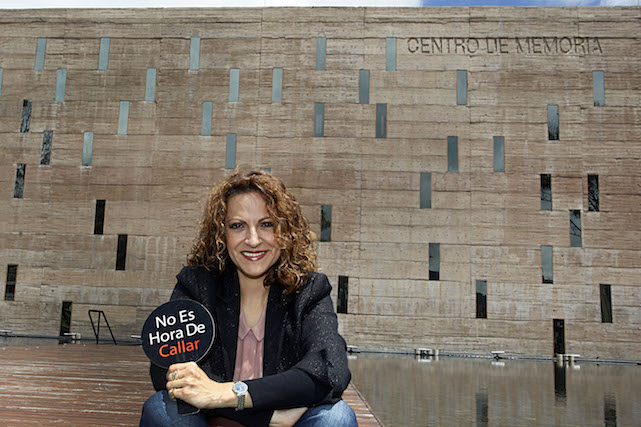The Foundation for Press Freedom views the decision of the Attorney General’s Office as appropriate, taking into consideration that both of the accused men have provided contradictory statements in their accounts relating to the case.
The following is a translation of a statement that was originally published on flip.org.co on 17 February 2016.
In a press conference held today, the Colombian Attorney General’s Office announced that it is requesting that Alejandro Cárdenas, alias “J.J.”, and Mario Jaimes, alias “El Panadero”, be excluded from the Justice and Peace process [which allows for an alternative prosecution model and sentencing for former paramilitaries who contribute to clarification of the truth and reparations to victims of the internal conflict]. The request was based on the fact that the two accused men have given contradictory statements and have failed to tell the truth regarding the kidnapping, torture and sexual assault of journalist Jineth Bedoya on 25 May 2000.
In 2011, Cárdenas admitted to his involvement in the crimes against Bedoya before a Justice and Peace prosecutor. In 2013, however, he retracted his confession, saying he had been paid to provide it. Jaimes for his part had always denied having participated in the actions against the journalist when providing statements within the Justice and Peace context, but on 2 February he admitted to his participation in the crimes within the framework of Colombian “ordinary law” (justicia ordinaria). Faced with this situation, the Attorney General’s Office decided that Jaimes’ confession, provided outside of the accounts freely given within the Justice and Peace process, disrespected the principles of truth telling and reparations for victims, which are basic pillars of transitional justice and the 2005 Justice and Peace Law (Ley 975).
In addition to this important request, the Attorney General’s Office also announced that it will continue the investigation into Jineth Bedoya’s case, as well as the inquiry into the killings, disappearances and other crimes, including arms trafficking, that were taking place in Bogotá’s Modelo Prison in early 2000. It was these activities that were being investigated by Bedoya at the time, providing the impetus for the attempt to silence her.
The Foundation for Press Freedom (Fundación para la libertad de prensa, FLIP), which is providing legal representation to Bedoya, views the decision of the Attorney General’s Office as appropriate, taking into consideration that both of the accused men have provided disjointed and contradictory statements in their accounts relating to the case. They have also omitted to provide key information required not only to understand the extent of their participation, but also to link other individuals, including public officials, to the crime.
For her part, Jineth Bedoya was emphatic in stating that the Colombian government bears a great responsibility to all the victims of the Modelo Prison, not just in relation to her case. As such, she called for all these events to be brought to light and for the rights of the victims to be respected, especially the right to truth – so fundamental in the peace negotiations being carried out by the government.
FLIP supports these requests and trusts that the Transitional Superior Court of Justice will endorse the exclusion petition. In addition, FLIP calls on the Attorney General’s Office to conduct the investigations it announced in an effective manner, leading to punishment of all the individuals involved in these crimes.



